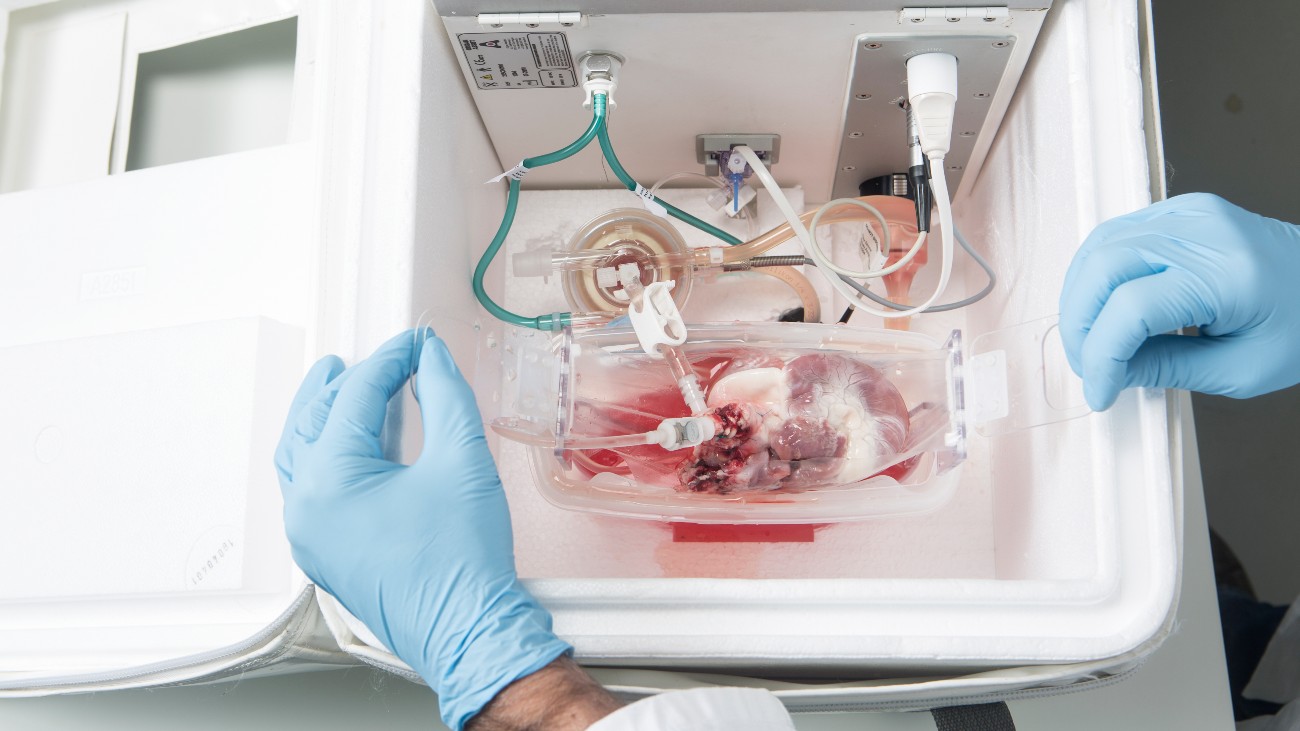The ‘heart in a box’ has also proven its worth in the Netherlands: thanks to the device, doctors have been able to transplant hearts from deceased donors for the first time.
In KIJK 11/2020 (‘Pepped organs’) Ian Alwayn, professor of transplant surgery at Leiden University Medical Center, explains that the quality of organs from people who are brain dead is the best – no matter how cruel that sounds. For that reason, heart donation was only possible if the donor had been declared brain dead.
But in 2020, 150 heart donors (out of 250 in total) died as a result of cardiac arrest, which prevented the organ from being transplanted. Donor hearts are therefore scarce. According to the Dutch Transplant Foundation, one in seven dies because a donor heart is not available on time. A so-called heart in a box, which scientists from the UMCs in Groningen, Utrecht and Rotterdam are researching, should change this.
Also read:
Heart in
a box
The device, developed by American scientists, warms the heart to body temperature and pumps oxygen, blood and a nutrient-rich liquid through it. As a result, the organ starts to beat again on its own. The three medical centers began testing the device on pig hearts in 2018. Then followed tests with human hearts. However, due to the corona pandemic, the research came to a standstill, heart-lung surgeon Michiel Erasmus of the UMCG told KIJK in 2020.
Now, a few months later, doctors have been able to ‘patch’ and transplant the hearts of deceased persons for the first time in the Netherlands. The donors had died of cardiac arrest. The heart in a box has also saved lives in England: six children between the ages of 12 and 16 had a heart transplant after the organ was charged with the device.
With medical technology, transplant surgeons expect that 40 extra donor hearts will become available every year. That is a doubling of the current number.
Long waiting list
There is an acute shortage of donor organs. In 2019 there were 1,271 people on the waiting list, an increase of 6 percent compared to the previous year. To change this, the donor law was changed on 1 July 2020. Everyone in the Netherlands over the age of eighteen is automatically included in the donor register. This should lead to more registrations.
Still, it is questionable whether more donor registrations will lead to more usable organs. One third of the donor organs, depending on the type, are still not considered suitable for transplantation. For example, if a patient has died of metastatic cancer, none of his or her organs can become available for transplantation. It is therefore logical that new ways are being sought to restore unhealthy organs. In LOOK 11/2020 (now only € 2.50) you can read about various medical techniques that can be used to repair organs.
–
Sources: NTS, LOOK 11/2020
Picture: Niels Blekemolen
–

:quality(80)/cdn-kiosk-api.telegraaf.nl/801afa20-ae31-11eb-94f5-02d1dbdc35d1.jpg)
